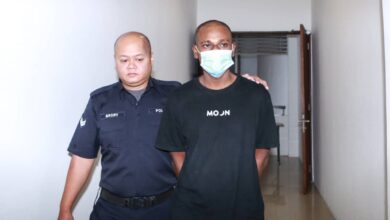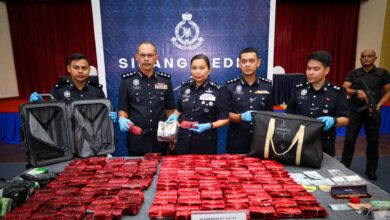Don’t be fooled by falling numbers, say medical groups

© Provided by Free Malaysia Today Data shows that from Feb 3-8, the number of PCR tests conducted daily reduced from 67,264 to 32,536.
PETALING JAYA: Although the number of new Covid-19 cases have fallen to under 4,000 from the more than 5,000 peak a little over a week ago, health experts have warned Malaysians not to be complacent.
They say the fall in numbers comes in conjunction with reduced testing.
Data obtained from CodeBlue shows that from Feb 3-8, the number of polymerase chain reaction (PCR) tests conducted daily reduced from 67,264 to 32,536.
This coincided with daily confirmed cases falling by over 1,000 across the assessed period after hitting 4,571 on Feb 4.
According to CEO of the Galen Centre, Azrul Khalib, “reported cases may not be an accurate reflection of reduced transmission of Covid-19,” as the positivity rate has remained consistently above the 5% benchmark set by the World Health Organization.

Positivity rate is the share of tests conducted that return positive results, with a high rate suggesting that many cases are falling through the cracks.
Azrul told FMT that Malaysia’s high positivity rate, which was as high as 9.5% on Feb 8, “suggests higher transmission and that there are likely more people with Covid-19 in the community who haven’t been tested yet.”
“What all this means is that we are not doing enough testing and that we are not getting a good picture of the Malaysian epidemic.”
Azrul said the positivity rate is more indicative of the state of the pandemic and should be taken into account by the government when making changes to the country’s Covid-19 response strategy.
The Malaysian Medical Association (MMA) said this massive drop in the number of tests may be a reflection of the government’s policy to test only symptomatic close contacts, with others being told to stay at home and isolate.
“The MMA has been urging the health ministry to revert to its earlier policy of testing all close contacts as there can be a risk of infections spreading from pre-symptomatic or asymptomatic carriers of the virus,” said the group’s president, Dr Subramaniam Muniandy.
He called for an increase in the use of the Antigen Rapid Test Kits (RTK-Ag) as a means of screening potential cases because the result can be returned more quickly than PCR tests and those identified can be isolated faster.
Azrul agrees that RTK-Ag tests could be used for rapid diagnosis but suggests confirmation be done using PCR tests.
Studies have found that RTK-Ag has a sensitivity rate of 90%, which means the results could be inaccurate 10% of the time while the sensitivity rate of PCR tests is as high as 98%.
Health policies specialist Dr Khor Swee Kheng said Malaysians must look at a variety of factors when assessing the severity of the pandemic, as single statistics are easily manipulated by external factors.
For example, he points out that a figure such as the infection rate or R0 (pronounced R-naught) can appear lowered if both testing and daily cases fall, which may not paint an accurate picture of the pandemic. This number reflects how many others an infected person is expected to transmit a disease to.
He said that people “need to look at testing adequacy to truly feel happy that we’re making progress,” as the quality of data collected can influence metrics that rely on that information.
Don’t proceed with Penang dam project until Guan Eng says sorry, says Najib




